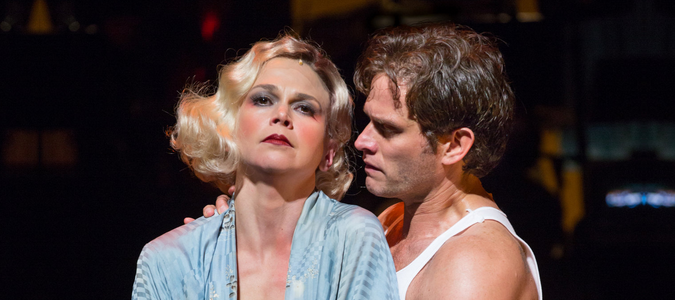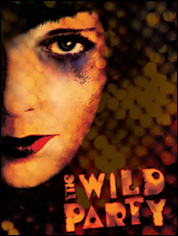

The Wild Party
Opening Night: July 15, 2015
Closing: July 18, 2015
Theater: New York City Center
Andrew Lippa’s tragic Jazz Age love story “The Wild Party” follows party girl Queenie (two-time Tony Award winner Sutton Foster) over the course of one decadent, booze-soaked night as she and her lover Burrs (Steven Pasquale) throw the party to end all parties–with a guest list of vaudevillians, hookers, and a handsome stranger (Brandon Victor Dixon) who offers Queenie the hope of a less tawdry life. The Wild Party is based on Joseph Moncure March’s searing 1928 narrative poem of the same name, and premiered Off-Broadway in 2000.
BUY TICKETSREAD THE REVIEWS:
July 16, 2015
For someone who first conquered Broadway as the most wholesome kid on the block, Sutton Foster dirties up real nice. Playing a jaded jazz baby in Andrew Lippa’s “The Wild Party,” which has been given a glossy concert revival by the Encores! Off-Center summer series, the actress who made her name being perky in musicals like “Thoroughly Modern Millie” and “Little Women” look deliciously louche and lowdown. As soon she makes her entrance wearing a platinum-blond wig, a second-skin beaded dress and a been-there, done-that smirk, it is clear that luridness becomes Ms. Foster. But just because she’s pretending to be a burnt-out case, don’t expect her to surrender the radiant sincerity for which she is celebrated. Her signature big, bright voice and wide-open face are still much in evidence as she shimmies and suffers her way through this 2000 tale of one night in hell in 1920s Manhattan. And she endows a willfully sour show, which has been retooled with her in mind by its creator, with a stinging sweetness it lacked 15 years ago. You could even say that “The Wild Party,” which once seemed sweaty without ever feeling warm, has taken on some heat and, more important, a heart. This attributes aren’t quite enough to make the case for Mr. Lippa’s frantic portrait of a fête fatale, which runs through Saturday at City Center, as a fully satisfying musical. His was one of two shows with the same title in New York in 2000, both based on Joseph Moncure March’s risqué narrative poem of the mid-1920s.
READ THE REVIEW


















